3rd. During the day was quite busy getting wheat, etc., together. Ordered to be ready to march this P. M. Got all ready but failed to move. Issued meal and flour till Tuesday. Wrote in the evening. Had some apples to eat. Boys played checkers. Two poor stoves.
American Civil War Chronicles
Downing’s Civil War Diary.–Alexander G. Downing.
December 3, 2023
Thursday, 3d–I went out on picket this morning. An order was read on parade this evening, announcing that all soldiers who will re-enlist for three years or during the war will be enrolled in the Veterans’ Corps, and receive a bounty of $400.00 and a thirty day furlough. Some of the boys signed their names at once.[1]
[1] I was not yet in from picket and so knew nothing of what was going on.—A. G. D.
Diary of Horatio Nelson Taft.
December 3, 2023
Dec 3rd 1863
Today we learn that Mead has fallen back (this way) to this side of the “Rapidan.” This creates much disappointment here and the general opinion is that Genl Mead is incompetant. But the whole policy of the forward movement is not publicly understood. Congressmen are now flocking to the City and stowing themselves away the best they can. High prices are paid by them for convenient rooms. $100 pr month is not unusual. There is no news today from Tennessee of importance. Burnside at last accounts from him was at Knoxville besieged by a rebel Army under Genl Longstreet, but in no great danger of being Captured. The Rebels hold about 13000 of our soldiers prisoner in Richmond and from all accounts are litteraly starving them to death. The Rebel Authorities have recently consented that our Govt may send them food and clothing. Exchanges have ceased. They refuse to give up negro prisoners which they have taken, and our Govt insist that they shall. We have now about forty thousand rebel prisoners on hand. The general opinion is that they have sold the negroes, or hung them. They have probably done both.
We have to keep all of our things on all the time and one-half of the men up all night, in case of an attack.
December 3, 2023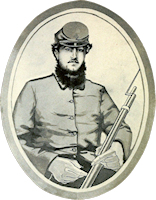
CAMP NEAR MORTON’S FORD, VA.,
December 3rd, 1863.
My Dear Mother:
I know you are anxious to hear from me, so I thought I would write, if not but a few lines, to let you hear from me and to know that I was well and safe. We left this place to-day was one week ago. That night at 3 o’clock we left and went down the river towards Germania Ford, where the Yankees have crossed in heavy force. We got there late in the evening, and had some very sharp skirmishes with them before night. We were in line of battle all night; just before day we fell back a short distance and established our line of battle and commenced throwing up our breastworks in the coldest kind of a rain. We were in an old field on top of a hill, where the wind came with all its fury. The smoke from our fires was almost enough to kill a man. We were in that condition, expecting an attack by the Yankees day or night. We have to keep all of our things on all the time and one-half of the men up all night, in case of an attack. Yesterday morning we commenced moving about 2 o’clock, and at daylight we discovered that the Yankees had retreated across the river. Our Brigade was ordered to the front and we commenced the pursuit. We pretty soon commenced taking a few stragglers and by ten o’clock we have taken (from the looks of them as passed them on the road this morning) three or four hundred. They were the poorest Yankees I ever saw. They did not have one mouthful to eat and said they had not had any in four days. They stated as an excuse that our cavalry had captured their wagons. Several of them offered me $2.00 a piece for crackers, but I told them we were rationed up for two days and I could eat everything in my haversack in one, so I could not spare them. I told them that they would draw something to eat pretty soon. One of them gave me his knapsack and everything in it and then very politely asked me if I could spare him a cracker. I could not refuse him, for the things that he gave me unsolicited were very valuable. A pair of new shoes and a Yankee tent are things that money will not buy. I would not take $25.00 for my tent which he gave me. They are large enough for two, and so light that you can roll them in your knapsack and not feel the weight at all. I could have gotten more little Yankee camp conveniences than I could carry, but we were then in line of battle, charging through the woods and I did not wish to bungle myself up too much. I do not know how long we shall stay here, but it’s my opinion, not long. I hope it will be long enough for us to get rested and recruited again before we set out for another march. Tom Stith brought all the things which you sent by him, including the letters. I am too tired and worn out to write an interesting letter. I merely wrote to set your mind at ease. As soon as I can cook something I shall try and go to sleep. I haven’t slept more than an hour at any time for nearly a week. My love to all. Write soon to your
Sincere and affectionate son,
WALTER
Letters from two brothers who served in the 4th North Carolina Infantry during the Civil War are available in a number of sources online. Unfortunately, the brothers are misidentified in some places as Walter Lee and George Lee when their names were actually Walter Battle and George Battle. See The Battle Brothers for more information on the misidentification.
A Rebel War Clerk’s Diary
December 3, 2023
DECEMBER 3d.—Meade recrossed the Rapidan last night! This is a greater relief to us than the enemy has any idea of. I hope the campaign is over for the winter.
And we have authentic advices of a terrible check given the enemy at Ringgold, Ga.; their killed and wounded being estimated at 2000, which caused Grant to recoil, and retire to Chickamauga, where he is intrenching.
After all, it is doubted whether Beauregard is to succeed Bragg. Lieut.-Gen. Hardee is in command, temporarily, and it may be permanently. Bragg was relieved at his own request. I know he requested the same thing many months ago. A full general should command there.
War Diary of Luman Harris Tenney.
December 2, 2023
2nd. Finished Burns yesterday. Pleased with him except that he tends too much to vulgarity. A good deal of wit. Firing all day in the direction of Walker’s Ford. Infantry moved down. Cavalry obliged to fall back across the river. Commenced running mill at Big Springs. Fisher failed to return the meal. Teams sent back in evening. Put on my Regimentals.
Downing’s Civil War Diary.–Alexander G. Downing.
December 2, 2023
Wednesday, 2d–We now have a good market house established here which has cut the cost of provisions; formerly the army sutlers had a corner on everything. I bought a barrel of potatoes for $4.00, which, without the market house, would have taken $12.00 out of my month’s pay. The provisions come from the North and are sold by retailers occupying stalls in the market house. They are usually at it as early as 3 o’clock in the morning.
Two brigades came up from Natchez this morning and went out to Black river bridge to reinforce the post there. A report reached camp to the effect that General Grant has raised the siege of Chattanooga and put Bragg’s army to rout, gaining a glorious victory. We threw up our hats and cheered for Grant. Sherman routed Longstreet from the siege of Knoxville, Tennessee. Everything seems to be coming our way again.
Diary of Horatio Nelson Taft.
December 2, 2023
Wednesday Dec 2nd 1863
Since my last date Genl Grant has defeated the rebel Army under Bragg at Chattanooga taking Six or seven thousand prisoners and about Sixty cannon. Genl Mead moved South from the Rapahannock last week. He has cut himself loose from all supply trains or Depots from this direction. He has ordered off all Reporters and we know but little about where he is at this date. He has a well appointed Army of Eighty thousand men and took along about twenty days rations for his Army. The object is Richmond. I expect He will fetch up on the James River. Congress meets next Monday and people are flocking to the City in droves. Julia is still at Mr Hartleys and is quite well. She comes into the office nearly every day to see me. I am now suffering from a severe cold owing I presume to the change in temperature. It has been quite cold for a day or two but no Snow as yet and I have seen no ice here until yesterday. The Head of the Statue of Freedom was put on today. The figure now stands complete upon the top of the Dome of the Capitol.
A Rebel War Clerk’s Diary
December 2, 2023
DECEMBER 2d.—No battle yet, though still hourly expected on the old field near the Rappahannock. And we have nothing definite from the West.
The appointment of Beauregard to succeed Bragg is not officially announced; and the programme may be changed.
Woolsey Family during the War.
December 2, 2023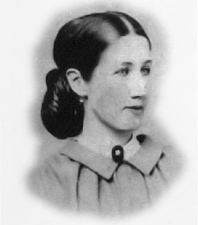 Harriet Roosevelt Woolsey to Jane and Georgeanna Woolsey.
Harriet Roosevelt Woolsey to Jane and Georgeanna Woolsey.
New York, Dec. 2, ’63.
Dear Girls:–Charley’s rheumatism is better and yesterday he walked without his cane. When he gets on the doe-skins (the triumphs of art that Mother is now at work upon) and his india-rubber knee-cap, I think he will be all right. At any rate, well or not, I suppose it is better for him to go to Washington, for he worries, now that the army is moving and he not with it, and his leave expired. . . . He is pounding away at a new camp-bed he is making. . . . I consider him a fit subject for the hospital, and to be doctored accordingly. . . . Our Church Sewing Society for the army had its first regular meeting yesterday. Abby is treasurer, and Mother, having been put into the president’s chair, got out again, not liking the conspicuousness, and was immediately pounced upon for the purchasing committee.
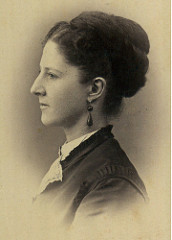 Eliza Woolsey Howland writes:–Charley is doing up all his errands (very fatiguingly) and announces his intention of going back, leg or no leg. . . . We are waiting very anxiously now for every mail and the news from Grant and Burnside–and if Meade is also fighting, as last night’s Post thinks, it would seem that the great crisis has really come.
Eliza Woolsey Howland writes:–Charley is doing up all his errands (very fatiguingly) and announces his intention of going back, leg or no leg. . . . We are waiting very anxiously now for every mail and the news from Grant and Burnside–and if Meade is also fighting, as last night’s Post thinks, it would seem that the great crisis has really come.
I go to cut out army shirts.
A Diary From Dixie.
December 2, 2023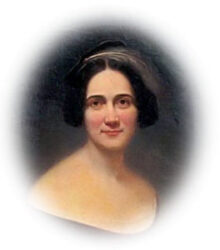
December 2d.–Bragg begs to be relieved of his command. The army will be relieved to get rid of him. He has a winning way of earning everybody’s detestation. Heavens, how they hate him! The rapid flight of his army terminated at Ringgold. Hardie declines even a temporary command of the Western army. Preston Johnston has been sent out post-haste at a moment’s warning. He was not even allowed time to go home and tell his wife good-by or, as Browne, the Englishman, said, “to put a clean shirt into his traveling bag.” Lee and Meade are facing each other gallantly.[1]
The first of December we went with a party of Mrs. Ould’s getting up, to see a French frigate which lay at anchor down the river. The French officers came on board our boat. The Lees were aboard. The French officers were not in the least attractive either in manners or appearance, but our ladies were most attentive and some showered bad French upon them with a lavish hand, always accompanied by queer grimaces to eke out the scanty supply of French words, the sentences ending usually in a nervous shriek. “Are they deaf?” asked Mrs. Randolph.
The French frigate was a dirty little thing. Doctor Garnett was so buoyed up with hope that the French were coming to our rescue, that he would not let me say “an English man-of-war is the cleanest thing known in the world.” Captain said to Mary Lee, with a foreign contortion of countenance, that went for a smile, “I’s bashlor.” Judge Ould said, as we went to dinner on our own steamer, “They will not drink our President’s health. They do not acknowledge us to be a nation. Mind, none of you say ‘Emperor,’ not once.” Doctor Garnett interpreted the laws of politeness otherwise, and stepped forward, his mouth fairly distended with so much French, and said: ” Vieff l’Emperor.” Young Gibson seconded him quietly, “Á la santé de l’Empereur.” But silence prevailed. Preston Hampton was the handsomest man on board–”the figure of Hercules, the face of Apollo,” cried an enthusiastic girl. Preston was as lazy and as sleepy as ever. He said of the Frenchmen: “They can’t help not being good-looking, but with all the world open to them, to wear such shabby clothes!”
The lieutenant’s name was Rousseau. On the French frigate, lying on one of the tables was a volume of Jean Jacques Rousseau’s works, side by side, strange to say, with a map of South Carolina. This lieutenant was courteously asked by Mary Lee to select some lady to whom she might introduce him. He answered: “I shuse you,” with a bow that was a benediction and a prayer.
And now I am in a fine condition for Hetty Cary’s starvation party, where they will give thirty dollars for the music and not a cent for a morsel to eat. Preston said contentedly, ”I hate dancing, and I hate cold water; so I will eschew the festivity to-night.”
Found John R. Thompson at our house when I got home so tired to-night. He brought me the last number of the Cornhill. He knew how much I was interested in Trollope’s story, Framley Parsonage.
[1] Following the battle of Gettysburg on July 1st, 2d, and 3d, of this year, there had occurred in Virginia between Lee and Meade engagements at Bristoe’s Station, Kelly’s Ford, and Rappahannock Station, the latter engagement taking place on November 7th. The author doubtless refers here to the positions of Lee and Meade at Mine Run, December 1st. December 2d Meade abandoned his, because (as he is reported to have said) it would have cost him 30,000 men to carry Lee’s breastworks, and he shrank from ordering such slaughter.
War Diary of Luman Harris Tenney.
December 1, 2023
Tuesday, 1st. In the morning issued rations to the 9th Mich. Sent Coats to see Fisher. Promised to send to me or come himself. Rebels reported across the river. Scout sent out. Maj. Gen. Foster arrived last night. Guns fired in his honor. Telegram from Leavitt to know about rations.
Diary of David L. Day.
December 1, 2023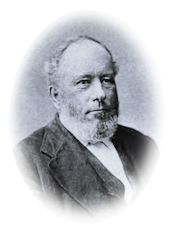
Newport News, Va., Dec. 1, 1863. On receipt of my furlough, which came promptly to hand at the appointed time, I, in company with eight others from the three companies, left Hill’s Point for Massachusetts. I had 20 days at home, a part of which I used up on the lounge, with chills and fever, and listening to the expressions of sympathy from callers. Ordinarily, when a person is sick, it is pleasant to he surrounded by sympathizing friends, but a person with chills and fever does not want sympathy; that only makes him mad. What he wants is whiskey and quinine, and the more whiskey the better. I was asked if the disease ever terminated fatally. I replied that the most provoking thing about it was, there was not the slightest danger of dying from it. After recovering from the chills and fever, I enjoyed the balance of my visit, very much, and reported back in New York the next morning after the expiration of my furlough.
Arriving in New York, I went directly to the New England rooms on Broadway. These rooms are a kind of free hotel for New England soldiers en route through New York, but will accommodate any others when they are not full. The rooms are well fitted up and there is a spacious loft or hall which is used for sleeping with 100 or more single cots, on each of which is a good mattress, pillow, a pair of woolen blankets and white spread. In this room a man is in attendance day and night to attend to the wants of patrons, preserve order and look after things generally. The dining hall will seat about 200 persons, and the tables are well supplied with plain, substantial, wholesome food. Another room is used for a sick room or hospital, and is filled up with a few cots and lounges, and the tables are well supplied with books and newspapers. This room is presided over by a kind-hearted, sympathetic lady, who was formerly a hospital matron in McClellan’s peninsular campaign. Besides, there is the office and baggage room, where one’s knapsack or other baggage is put away and checked. The owner takes his check and gives no further thought or care of his baggage until wanted. In addition to these, are all other necessary conveniences. These rooms were fitted up and are supported by the patriotic generosity of New Englanders, residents in New York, and many are the thanks and blessings they receive from their beneficiaries. Here I found Spencer and Lewis, who were furloughed with me, and who had just arrived. The clerk told us we must report to a certain quartermaster up town for instructions. We reported; he examined our papers, endorsed on the backs “reported back all right and on time,” and told us we must report at the transportation office down near the battery park. We reported, and were informed there was no transportation waiting, but we must report every morning in order to avail ourselves of the first boat that left. [continue reading…]
Downing’s Civil War Diary.–Alexander G. Downing.
December 1, 2023
Tuesday, 1st–All is quiet. We had dress parade this afternoon at 5 o’clock. I wrote a letter home today.
A Rebel War Clerk’s Diary
December 1, 2023
DECEMBER 1st.—This morning the ground is frozen hard. There was no battle yesterday, only heavy skirmishing. Both armies were drawn up in line of battle, and the front lines slept on their arms. Some froze to death. This morning the enemy opened with artillery—but no battle ensued that we are aware of.
At the last accounts from Bragg he was still retiring, near Dalton. His army must be nearly broken up.
Bragg, it is rumored to-day, has been relieved.
Downing’s Civil War Diary.–Alexander G. Downing.
November 30, 2023
Monday, 30th–The weather continues with pleasant days and very cool nights. I loaned $5.00 to Thomas R. McConnoll. No news of importance.
War Diary of Luman Harris Tenney.
November 30, 2023
30th. June came down looking better. No news of importance. Yesterday morning firing heard in the direction of Knoxville, very heavy. None since. Rebels thought to be leaving. Thede came back about dark with rations of sugar and coffee. Had a long jaunt of it. Went from T. to Walker’s Ford.
A Confederate Girl’s Diary
November 30, 2023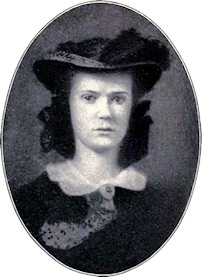
Monday, November 30th.
Our distress about Gibbes has been somewhat relieved by good news from Jimmy. The jolliest sailor letter from him came this morning, dated only the 4th instant from Cherbourg, detailing his cruise on the Georgia from leaving England, to Bahia, Trinidad, Cape of Good Hope, to France again. Such a bright, dashing letter! We laughed extravagantly over it when he told how they readily evaded the Vanderbilt, knowing she would knock them into “pie”; how he and the French Captain quarreled when he ordered him to show his papers, and how he did not know French abuse enough to enter into competition with him, so went back a first and second time to Maury when the man would not let him come aboard, whereupon Maury brought the ship to with two or three shots and Jimmy made a third attempt, and forced the Frenchman to show his papers. He tells it in such a matter-of-fact way! No extravagance, no idea of having been in a dangerous situation, he a boy of eighteen, on a French ship in spite of the Captain’s rage. What a jolly life it must be! Now dashing in storms and danger, now floating in sunshine and fun! Wish I was a midshipman! Then how he changes, in describing the prize with an assorted cargo that they took, which contained all things from a needle to pianos, from the reckless spurt in which he speaks of the plundering, to where he tells of how the Captain, having died several days before, was brought on the Georgia while Maury read the service over the body and consigned it to the deep by the flames of the dead man’s own vessel. What noble, tender, manly hearts it shows, those rough seamen stopping in their work of destruction to perform the last rites over their dead enemy. One can fancy their bare heads and sunburned faces standing in solemn silence around the poor dead man when he dropped into his immense grave. God bless the “pirates”!
A Rebel War Clerk’s Diary
November 30, 2023
NOVEMBER 30th.—It is clear and cold. The boat in which my son and the battalion of clerks went down the river yesterday, sunk, from being overloaded, just as it got to the landing. It is said some of the boys had to wade ashore; but none were lost—thank God!
This morning early, Lee and Meade confronted each other in battle array, and no one doubts a battle is in progress to-day this side of the Rapidan. Lee is outnumbered some two to one, but Meade has a swollen river in his rear. It is an awful moment.
I took my remaining son to the office this morning, to aid me in Custis’s absence.
At night. Nothing has yet been heard from the battle, if indeed it occurred to-day. It is said that Meade is ordered to fight. They know at Washington it is too late in the season, in the event of Meade’s defeat, for Lee to menace that city, or to invade Pennsylvania. It is a desperate effort to crush the “rebellion,” as they suppose, by advancing all their armies. And indeed it seems that Meade is quite as near to Richmond as Lee; for he seems to be below the latter on the Rappahannock, with his back to Fredericksburg, and Lee’s face toward it. If Meade should gain the victory, he might possibly cut off Lee from this city. Nevertheless, these positions are the result of Lee’s manœuvres, and it is to be supposed he understands his business. He has no fear of Meade’s advance in this direction with his communications cut behind him.
Captain Warner has sold me two pieces of bacon again, out of his own smoke-house, at $1 per pound, while it is selling in the market at $3.50 per pound—and he has given us another bushel of sweet potatoes. Had it not been for this kind friend, my little revenue would not have sufficed for subsistence.
While the soldiers are famishing for food, what is called “red tapeism” prevents the consummation of contracts to supply them. Captains Montgomery and Leathers, old steamboat captains, with ample capital, and owning the only steamboats in certain waters of Florida, have just proposed to furnish the government with a million pounds salt beef, on the main line of railroad in Florida, at a reduced price. The cattle are exposed to incursions of the enemy, and have to be transported by steamboats. They endeavored to make a proposal directly to the Secretary, which was so expressed in the communication I prepared for them—as they were unwilling to treat with Col. Northrop, the Commissary-General, who has become extremely obnoxious. But it was intercepted, and referred to the Commissary-General. Learning this, the captains abandoned their purpose and left the city—the Secretary never having seen their proposal. Our soldiers will not get the beef, and probably the enemy will.
0
November 30, 2023
November 30, 1863, The New York Herald
Our latest news from the Army of the Potomac is up to Saturday morning. It was reported that General Kilpatrick’s cavalry had attempted to cross the river at Raccoon Ford on the day previous, under the fire of the rebel batteries, but were driven back. Severe skirmishing has been going on at different points since Friday, at which time the enemy had fallen back from our centre to within two miles of Orange Court House. Our line of battle appears to have been formed on the road leading to that place. The corps of Generals French, Warren and Prince had pretty heavy skirmishing with the enemy, but in each case either drove them back or maintained their own position. General French, with the Third corps, lost heavily, and not only held his ground, but captured nine hundred of the rebels, the Sixth corps being thrown forward to support him. The Fifth corps’ train was attacked in flank by the rebel cavalry on the plank road, who destroyed fifteen or twenty wagons. General Gregg’s cavalry, on the left, had a severe fight with the rebel cavalry, and drove them back upon their infantry, and then fell back upon the Fifth corps, who, in turn, drove the rebel infantry back.
A refugee from Richmond, recently arrived within our lines, furnishes the following estimate of the present force of Lee army: — Ewell’s corps, now commanded by Early, twenty to twenty-one thousand infantry and six batteries of artillery; A.P. Hill’s corps, twenty thousand infantry and five batteries of artillery; Stuart’s cavalry, eight thousand cavalrymen and two batteries of flying artillery — making in all forty-one thousand infantry, eight thousand cavalry and seventy-eight cannon.
It is again announced in the Washington despatches that General Posey, of the rebel army, is dead. Rumors of his demise have reached us several times, but we have the positive intelligence of his death today from the Richmond Whig, which states that died at Charlottesville on Sunday, the 15th instant, from a wound received during the late fight at Bristoe Station. He was interred at Charlottesville with military honors. General Posey was formerly Colonel of the Forty-eighth Mississippi regiment, Featherson’s brigade, and when that officer was transferred from the Army of Virginia to the West, General Posey was commissioned to succeed him. The rumors about General Ewell’s death will probably also prove true. He too was in Charlotteville at last accounts, in a very bad state of health.
General Meredith, the Union Commissioner for exchange of prisoners, states that he has every reason to believe that the goods sent by the Sanitary Commission of Philadelphia and by other parties have been received by our prisoners at Richmond, and suggests that as much more as possible should be sent on.
The latest news from Grant’s army is to the 28th (Saturday). No fighting took place on the front that day. Bragg was reported to be concentrating his army near Dalton, with the intention apparently of making a stand. He has recalled General Longstreet from his position in front of Knoxville, and the latter was endeavoring to join Bragg by a circuitous route. A despatch from Cincinnati yesterday states that the last accounts from Knoxville up to Wednesday report that a portion of the north part of the town has been burned, including the depot, but no particulars are given. General Burnside is said to be cheerful, and confident of the security of his position.
A Diary From Dixie
November 30, 2023
November 30th.–I must describe an adventure I had in Kingsville. Of course, I know nothing of children: in point of fact, am awfully afraid of them.
Mrs. Edward Barnwell came with us from Camden. She had a magnificent boy two years old. Now don’t expect me to reduce that adjective, for this little creature is a wonder of childlike beauty, health, and strength. Why not? If like produces like, and with such a handsome pair to claim as father and mother! The boy’s eyes alone would make any girl’s fortune.
At first he made himself very agreeable, repeating nursery rhymes and singing. Then something went wrong. Suddenly he changed to a little fiend, fought and kicked and scratched like a tiger. He did everything that was naughty, and he did it with a will as if he liked it, while his lovely mamma, with flushed cheeks and streaming eyes, was imploring him to be a good boy.
When we stopped at Kingsville, I got out first, then Mrs. Barnwell’s nurse, who put the little man down by me. “Look after him a moment, please, ma’am,” she said. “I must help Mrs. Barnwell with the bundles,” etc. She stepped hastily back and the cars moved off. They ran down a half mile to turn. I trembled in my shoes. This child! No man could ever frighten me so. If he should choose to be bad again! It seemed an eternity while I waited for that train to turn and come back again. My little charge took things quietly. For me he had a perfect contempt, no fear whatever. And I was his abject slave for the nonce.
He stretched himself out lazily at full length. Then he pointed downward. “Those are great legs,” said he solemnly, looking at his own. I immediately joined him in admiring them enthusiastically. Near him he spied a bundle. ”Pussy cat tied up in that bundle.” He was up in a second and pounced upon it. If we were to be taken up as thieves, no matter, I dared not meddle with that child, I had seen what he could do. There were several cooked sweet potatoes tied up in an old handkerchief–belonging to some negro probably. He squared himself off comfortably, broke one in half and began to eat. Evidently he had found what he was fond of. In this posture Mrs. Barnwell discovered us. She came with comic dismay in every feature, not knowing what our relations might be, and whether or not we had undertaken to fight it out alone as best we might. The old nurse cried, “Lawsy me!” with both hands uplifted. Without a word I fled. In another moment [continue reading…]
Downing’s Civil War Diary.–Alexander G. Downing.
November 29, 2023
Sunday, 29th–We learned that there had been several spies in the city getting plans of our fortifications; they also got medical supplies and other articles of value to the rebels, and smuggled them through our lines at night. Special precaution is taken and the guard is to be continued. We were relieved this morning by a detail from the Thirteenth Iowa.
War Diary of Luman Harris Tenney.
November 29, 2023
29th. Started Theodore to find Leavitt and rations and to see Jackson. Also sent for salt. Read several chapters in Bible. Have neglected reading Bible too much since I have been in the army. Borrowed “English Orphans” and reviewed it. Good story. Mrs. Jones’ Hdqrs. Two sons in rebel army.
Robert M. McGill
November 29, 2023
Sunday, 29th.—Federals have fallen back towards Chattanooga. Burned Ringgold.
(Note: picture is of an unidentified Confederate soldier.)
A Rebel War Clerk’s Diary
November 29, 2023
NOVEMBER 29th.—The clerks were marched out into the muddy street this morning in a cold rain, and stood there for hours, while the officers were making up their minds when to start for the boat to convey them to Drewry’s Bluff, whence they are to march to Chaffin’s Farm, provided the officers don’t change their minds.
There are reports of a repulse of the enemy by Lee yesterday, and also of a victory by Bragg, but they are not traceable to authentic sources.
At 3 o’clock P.M. it is cold, but has ceased to rain.
The want of men is our greatest want, and I think it probable Congress will repeal the Substitute Law, and perhaps the Exemption Act. Something must be done to put more men in the ranks, or all will be lost. The rich have contrived to get out, or to keep out, and there are not poor men enough to win our independence. All, with very few exceptions, between the ages of 18 and 45, must fight for freedom, else we may not win it.